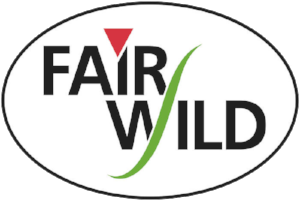New foundation to promote sustainable collection of wild plants
Barcelona, Spain, 9 October 2008—An important agreement was signed today between the four founding institutions of the International Standard for Sustainable Wild Collection of Medicinal and Aromatic Plants (ISSC-MAP) to endorse global implementation of the standard through the FairWild Foundation.
ISSC-MAP is a standard that promotes appropriate management of wild plant populations used in medicines and cosmetics to ensure they are not over-exploited. Under the new agreement, the FairWild Foundation will help develop an industry labelling system so products harvested using the sustainable ISSC-MAP criteria can be readily recognised and certified. Use of the standard will be promoted throughout the herbal products industry.
ISSC-MAP was developed by a partnership including the German Federal Agency for Nature Conservation (BfN), the IUCN SSC Medicinal Plant Specialist Group (MPSG), WWF-Germany, and TRAFFIC, plus industry associations, companies, certifiers and community-based NGOs. The announcement was made at the World Conservation Congress, currently underway in Barcelona.
“This new agreement marks a significant step forward in the sustainable use of wild plants important to human health and well being. Industry adoption of the standard will ensure sustainable use and equitable sharing of the world’s wild plant resources, reinforcing the healthy environments, healthy people theme running throughout the World Conservation Congress,” said IUCN Director General Julia Marton-Lefèvre signing the agreement on behalf of IUCN.
“A susscessful wild plant collection standard is essential to ensure sustainable use of medicinal plants not only for purposes of nature conservation but also in a social and economic context. Germany, as one of the major medicinal plant importers worldwide has a special responsibility of acting upon such principles,” said Professor Beate Jessel, President of the German Federal Agency for Nature Conservation.
More than 400,000 tonnes of medicinal and aromatic plants are traded annually, with around 80% of the species harvested from the wild. Almost 3,000 species are traded, many of them over-exploited and in danger of extinction through over-collection and habitat loss. Implementation of the standard will stop more plants being over-exploited and becoming threatened with extinction under IUCN’s Red List criteria.
“Over-harvesting of wild plants is a serious, yet often neglected issue. This timely agreement is a milestone on the road to seeing sustainability become the norm throughout the herbal products industry.” said Steven Broad, Executive Director of TRAFFIC.
“Worldwide, people depend on medicinal plants and profit from the unique therapeutic effects of medicine from nature’s pharmacy,” said Guillermo Castilleja, Executive Director of Conservation, WWF. “This new agreement is a significant step forward in ensuring the long-term sustainability and supply of these invaluable natural products.”
ENDS
For more information, please contact: Richard Thomas, TRAFFIC International, Email: richard.thomas@traffic.org mobile: +44 752 6646 216.
NOTES
1 Organisations and experts involved in the ISSC-MAP consultation included: the German Federal Agency for Nature Conservation (BfN), the IUCN SSC Medicinal Plant Specialist Group (MPSG), WWF-Germany, and TRAFFIC, plus industry associations, companies, certifiers and community-based NGOs.
2 The Fair Wild Foundation was founded in 2005 as a joint initiative of the Swiss Import Promotion Organisation (SIPPO), the Institute for Marketecology (IMO), and Forum Essenzia to promote socially and environmentally sustainable use of natural products.
3 The ISSC-MAP is based on six principles: maintaining wild medicinal and aromatic plant resources, preventing negative environmental impacts, legal compliance, respecting customary rights, applying responsible management practices, and applying responsible business practices. To download a copy as a PDF, and to find out more about the standard and its implementation, please visit: http://www.floraweb.de/MAP-pro/
4 A BfN release in German on this issue can be found here
